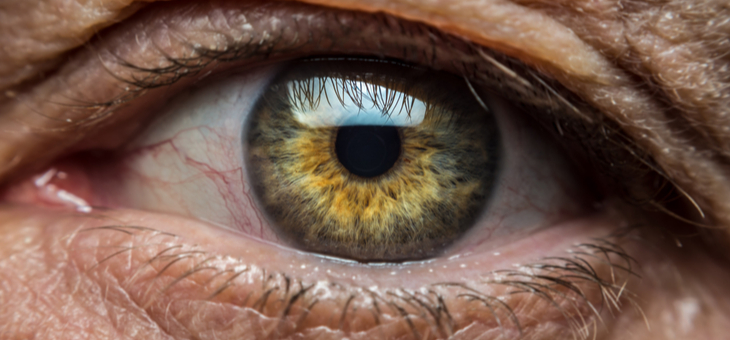Vision loss is one of the most common conditions associated with depression for older people, a study has revealed. The Blue Mountains Eye Study has also shown a strong link between visual impairment and falls in older adults. Another study revealed that reduced vision in older people increases their risk of having a car accident.
Many of us take our eyesight for granted and are likely to ignore problems until it’s too late. Here are the top seven mistakes we make when it comes to the health of our eyes.
Not wearing sunglasses
Many of us only remember to wear sunglasses on particularly sunny days, and even then, they’re often overlooked when heading out. Ultraviolet rays from the sun increase our chances of developing conditions such as pterygium (when a pinkish tissue grows across the eye), molecular degeneration and cataracts. SunSmart.com provides a daily UV forecast so you can work out when your eyes might be at risk and remember to wear sunglasses that block out both UVA and UVB rays.
Ignoring your injured or irritated eyes
If you’ve injured your eyes, don’t wait to see if the symptoms will improve on their own. Visit your eye doctor as soon as possible if you:
- can see blood on your eye
- find it difficult to move an eye
- notice that your pupils are different sizes
- can’t open your eye
- have trouble seeing..
Spending too much time looking at screens
In this digital era it’s easy to lose track of the time we spend looking at screens. Focusing on a screen can damage our vision, so it’s important to follow the 20-20-20 rule. Every 20 minutes, look away for 20 seconds at something 20 ft away, as recommended by WebMD. Blue light from screens can prematurely age our eyes. Research suggests that too much exposure to blue light may cause eye strain, retina damage and age-related macular degeneration. To protect yourself against this, reduce your screen time or even look into filters and computer glasses that reduce the amount of blue light emanating from your computer screen.
Not knowing your family history
Research shows that there are over 360 hereditary eye diseases. Researchers believe that macular degeneration and glaucoma, two of the most common causes of blindness, may be linked to genetics. Make sure that you know of any eye conditions in your family so that you can flag them with your doctor. This may help with early detection.
Causing your own eye infections
Even simple mistakes, such as rubbing your eyes or sleeping with makeup on can cause particles and bacteria to enter your eyes and cause infection. Neglecting to clean your contact lenses in the recommended solution or not changing them out as recommended can put your eye hygiene at risk. Similarly, sleeping or showering with your contact lenses in can allow germs to take hold and cause infection.
Not having a yearly eye check-up
Once we hit the age of 40 it’s important for us to have an annual eye exam, just to make sure that everything is working as it should. This can help with the early detection of issues that could later cause vision impairment. If you have experienced changes in your vision or have any concerns about the health of your eyes, visit your eye doctor as soon as possible.
Smoking
As with many medical conditions, smoking is likely to harm your eyes. Smoking may increase your chances of developing cataracts and having macular degeneration, and can damage your optic nerve, cause blind spots or blurry vision. Visit Quit or How to quit smoking for more information.
If you enjoy our content, don’t keep it to yourself. Share our free eNews with your friends and encourage them to sign up.
Related articles:
Common eye myths: fact or fiction?
What are eye floaters?
Keep an eye out for cataracts
Disclaimer: This article contains general information about health issues and is not advice. For health advice, consult your medical practitioner.

